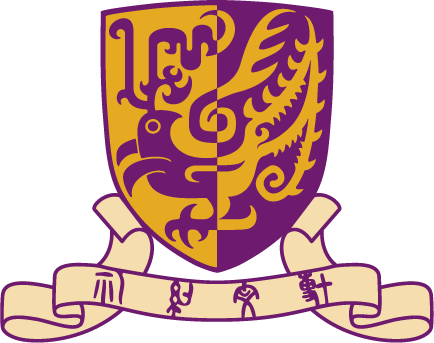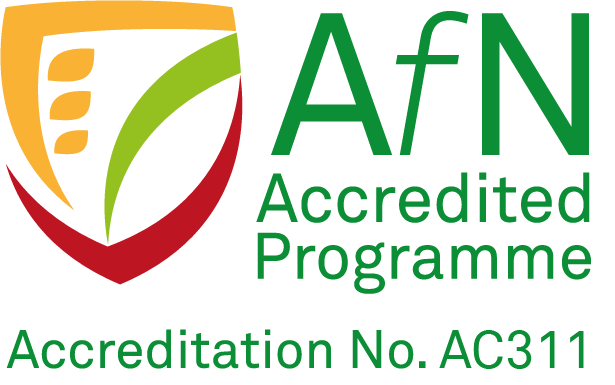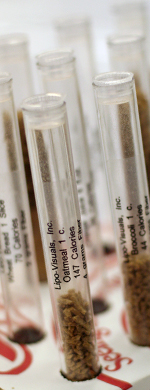| FNSC 5430 Food Toxicology andSafety (3 Units) (Elective) |
 |
|
Food can be contaminated with naturally occurring toxicants and/or man-made chemicals that have adverse health effects to humans at any stage of its production and handling. The objective of this course is to gain knowledge on the key concepts and principles of food safety and toxicology. Students are expected to develop an understanding of the nature and properties of the toxic substances in foods as well as the nature and magnitude of the hazard they represent to humans, with the aim of preventing health risks due to food intake. Topics on food safety include food hygiene, food poisoning, food legislation and food safety control systems. Topics on food toxicology include its general principles, biochemical and physiological mechanisms of action of food toxicants, and methods for food safety assessment. Emphasis will be placed on the evaluation of current issues in food safety toxicology including risk assessment and management.
|
- Basic concepts of Toxicology
- Food safety, personal and environmental hygiene, food safety regulation and food hygiene management
|
| Back to top |
 |
|
|
| FNSC 5110 Chemical, Physical, and Microbiological Characteristics of Food (3 Units) (Elective) |
 |
|
This course applies the knowledge of the physical and chemical behavior of food components in the context of food manufacturing and storage, with emphasis on both safety and nutritional attributes. It also aims at developing chemical, microbiological and sensory analyses to assess the quality and safety of foods.
|
- Chemical, Physical and Microbiological Properties of Food Components
- Advanced Chemical and Microbiological Analysis of Food
- Sensory Evaluation of Food
|
| Back to top |
 |
|
|
| FNSC 5210 Food Processing Technology and Food Biotechnology (3 Units)(Elective) |
 |
|
This course reviews the causes of food spoilage and quality loss. Principles and effects of traditional food processing and food preservation technology on food quality will be covered. New and emerging processing technology will also be covered. The course highlights the latest industrial applications of food biotechnology with emphasis on the production of food and food products through molecular biology, bioprocess engineering and microbial biotechnology.
|
- Principles of Food Processing and Preservation
- Emerging Processing Technology
- Food Biotechnology
|
| Back to top |
 |
|
|
| FNSC 5120 Nutrition and the Challenge of Non-communicable Disease (3 units)(Elective) |
 |
|
This course is directed to students and health care professionals who require more in-depth nutritional knowledge for their work. The course will emphasize the therapeutic nutrition in modification of the nutrients or other aspects of a normal diet to meet a person's nutritional needs during an illness. The course consists of three modules:
|
- Public Health and Nutrition Policy
- Nutrition and Non-Communicable Diseases
- Nutrition and Diet therapy
|
| Back to top |
 |
|
|
| FNSC 5220 Nutrition and Immunity across the Life Span (3 units)(Elective) |
 |
|
The course is designed to meet the expanded needs of a broad spectrum of students with varying nutritional background. It covers nutritional needs at different stages of human development, nutrient-gene interaction, diet and human immune function, and food allergies. Three modules are:
|
- Marco & Micronutrients
- Nutrition across the Life Span
- Nutrition and Immunity
|
| Back to top |
 |
|
|
| FNSC 5420 Applied Nutrition (3 units)(Elective) |
 |
|
This course presents applied aspects of nutrition with emphasis on weight management, functional foods, and nutritional values of traditional Chinese herbal medicine, with a view to enhance health status and quality of life. Each of these modules addresses a specific issue that is the interest of public and presents the progress in these exciting new researches. Three modules are:
|
- Fitness, Nutrition and Weight Management
- Research and Development in Functional Foods
- Research and Development in Functional Foods
|
| Back to top |
 |
|
|
| FNSC 6313 Directed Research and Seminar I (3 units)(Required) |
 |
|
In this course, students will undertake a research project or review a topic of their choice in areas of either nutrition or food science and technology under the supervision of a faculty member. Each student is required to submit a written progress report about his or her research on completion of the course.
|
| Back to top |
 |
|
|
| FNSC 6413 Directed Research and Seminar II (3 units)(Required) |
 |
|
In this course, students will undertake a research project or review a topic of their choice in area of either nutrition or food science and technology under the supervision of a faculty member. The results of the research or literature review will be presented in a seminar and be formally written in the form of a final report.
|
| Back to top |
 |
|
|
| FNSC 5320 Nutritional Physiology (3 units)(Elective) |
 |
|
|
 |
| |
|
|





